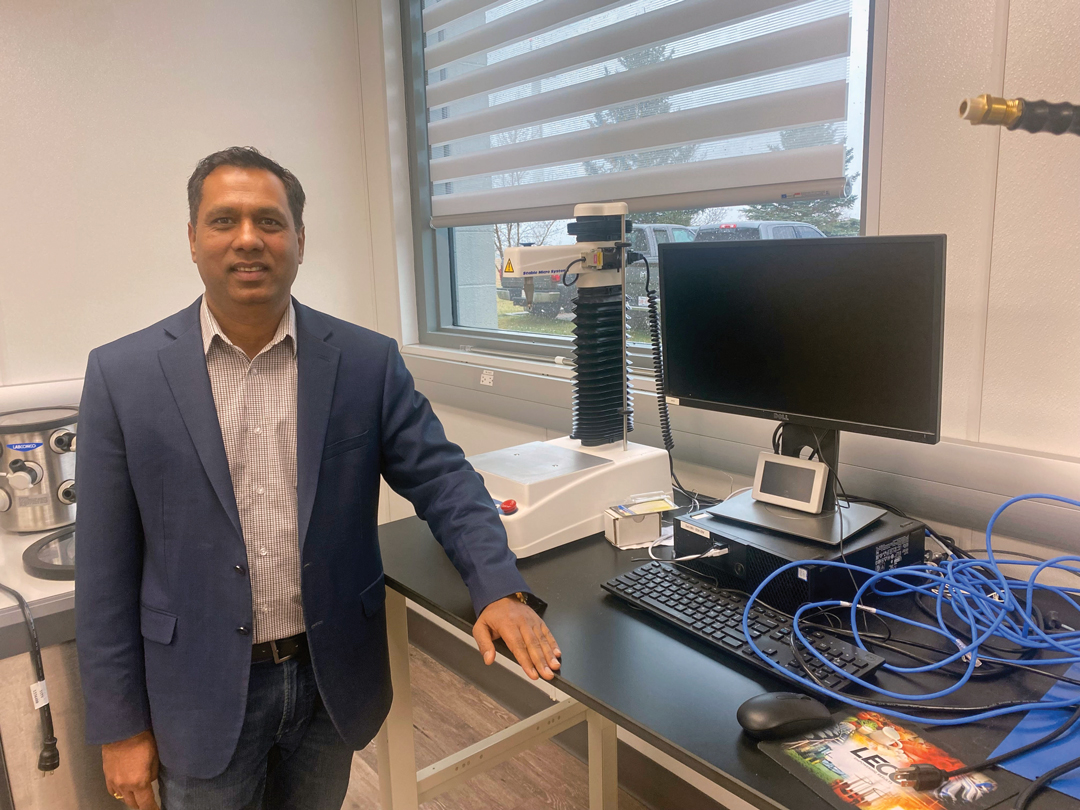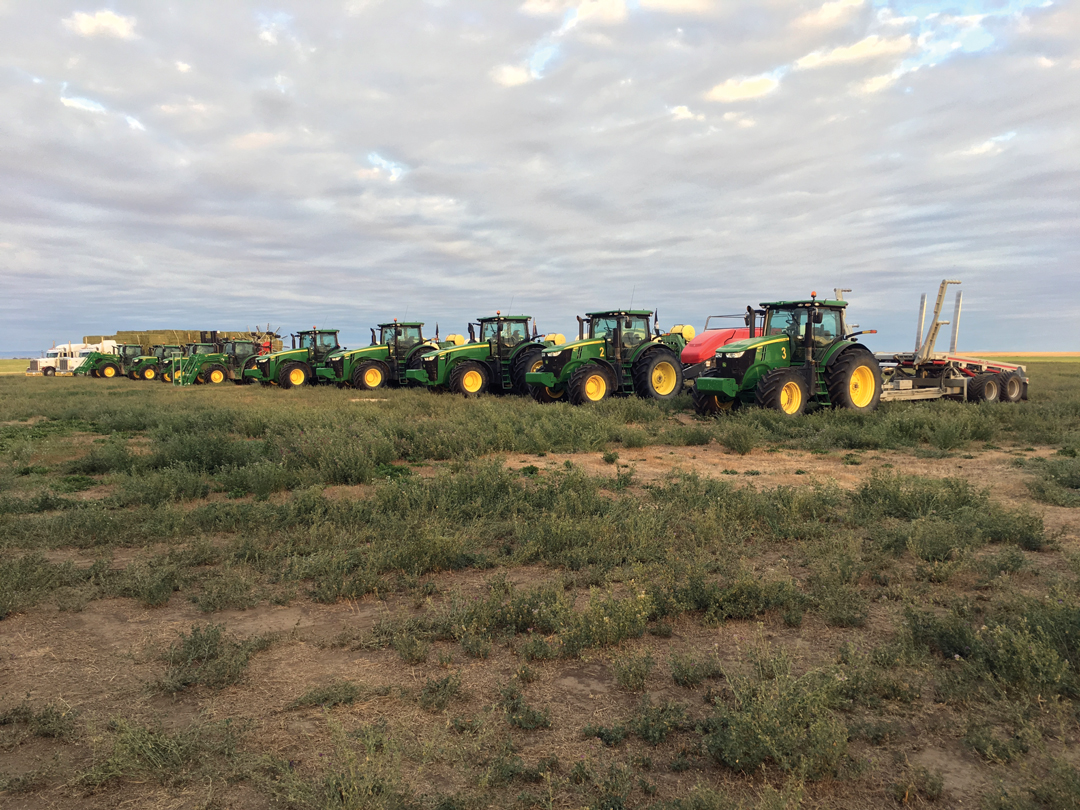ARIF A RESOURCE HUB
BY ADELINE PANAMAROFF • PHOTO COURTESY OF GARY STANFORD
Lethbridge Polytechnic was granted its new post-secondary status in September 2024 and has made applied research a high priority since it dropped “College” from its name. Central to this updated focus is the Agriculture Research Innovation Facility (ARIF), which has been in operation since the summer of 2023. The ARIF is housed in the 14,000-square-foot former Farm Stewardship Program building, previously operated by the Province.
The updated focus was a response to broad interest in applied research. “There was a need to meet real world problems that farmers, processors and industry representatives within our community voiced,” said Leslie May, applied research operations officer. The creation of ARIF was also spurred by the Polytechnic’s then-ongoing expansion of agricultural applied research as well as in the broader, regional research ecosystem, added May.
The ARIF is intended to function as a hub for agricultural research with practical, regionally relevant applications in industry and on the farm. The Mueller Irrigation Research Group (MIRG), which studies technologies that can assist with precision irrigation practices and better water management, and the Advanced Post-harvest Technology Centre (APHTC), which researches aspects of post-harvest crop storage, are housed within the ARIF.
Two additional Polytechnic departments, the Centre for Sustainable Food Production and the Aquaculture Centre of Excellence, which make up the Integrated Agriculture Technology Centre, also conduct research activities in the facility.
These programs fall under the research umbrella of Lethbridge Polytechnic’s Centre for Applied Research, Innovation and Entrepreneurship, which creates opportunities for students to gain hands-on applied research experience in partnership with industry stakeholders.
Facility renovations were completed with $2 million in federal funding from PrairiesCan. These funds are in part used to hire post-doctoral researchers, master’s students and summer student staff for research teams that use the facility. Grants from Canada Foundation for Innovation (CFI) and Alberta’s Research Capacity Program (RCP) along with industry and institutional support secured lab equipment and instrumentation.
ARIF resources include seven labs, offices, a large collaborative work area and three 20,000-bushel grain bins located at the Research Demonstration Farm east of Lethbridge. The labs’ cutting-edge equipment is used to study long-term, post-harvest grain storage and soil health.
Two walk-in coolers are used by APHTC to store testing samples. The bins are used by APHTC for post-harvest research projects. The APHTC has focused on storage and quality related projects. “We need to have food security,” said the program’s director, Chandra Singh. “Sustainability is an issue, and storage is a big part of it. Even two to five per cent improvement [is progress]. We get value by collecting research data and farmers are happy to see the results from this. Hopefully that will also encourage them to adopt such technology,” said Singh.
MIRG conducts field work at the Research Demonstration Farm to improve water-use efficiency. The program’s field equipment includes state-of-the-art overhead irrigation systems funded by CFI and RCP and hardware used to monitor weather, water, soil and plant conditions. “We aim to provide useful outcomes to all crops in irrigated rotations,” said Willemijn Appels, Mueller applied research chair.
Singh hopes future research conducted at the ARIF will expand to encompass projects that provide value-added revenue streams to farmers. “Agriculture is a huge contributor to the provincial economy. We support the industry, and we work closely with farmers.”







Comments